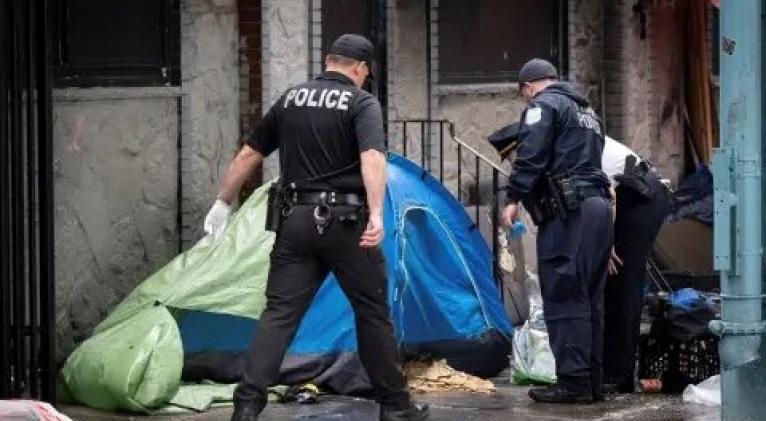US Supreme Court Decision Undermines Right to Housing
especiales

The United States Supreme Court decision last month in Grants Pass v. Johnson gives local governments across the country the authority to ticket, arrest, and punish unhoused people for simply existing in public spaces. The ruling undermines the right to adequate housing in the US; it is also profoundly cruel and risks an increase in ineffective criminalization.
In its ruling, the Court overturned decisions by the US Court of Appeals for the 9th Circuit in this case and in Martin v. Boise, which limited punishment if there was no other place for a person legally to go or if there was no shelter available. The Court said that criminalizing a person for their unhoused status does not violate the prohibition on “cruel and unusual punishments” in the 8th amendment to the US Constitution.
The Supreme Court had previously held that authorities may not punish a person based solely on their status, as opposed to their conduct. The Grants Pass majority did not explicitly overrule that precedent, but said the 8th Amendment only applies to the form of punishment--not the outlawed conduct or status --and that state governments may choose to criminalize whatever they want without violating the Constitution. This ruling opens the door to further punishment of poverty and other statuses.
This decision gives local and state governments a green light to enact and enforce laws banning unhoused people from public spaces, regardless of whether adequate housing or shelter is available to them. States across the country, including Georgia, Texas, Florida and others, have already passed such laws. A recent study found that the majority of cities examined already had such laws in place.
In Los Angeles, previously limited by the 9th Circuit precedent, city councilmembers have already begun to explore options to further criminalize unhoused people in light of the Supreme Court decision. Other jurisdictions will likely race to take similar steps, not wanting to be the only areas in their region where unhoused people can safely stay.
Criminalization is not, as the majority opinion claims, a legitimate tool to combat houselessness as it subjects people to cruel treatment and arbitrary arrest, punishing them for simply existing in public space because they lack housing. Criminalization is also proven to be ineffective. It forces unhoused people to hide from view, separating them from helpful services. Criminalization causes suffering, but does nothing to house people. This ruling allows authorities to ignore real solutions, especially providing and preserving affordable housing, because they can simply chase unhoused people away with the threat of criminal enforcement.














Add new comment